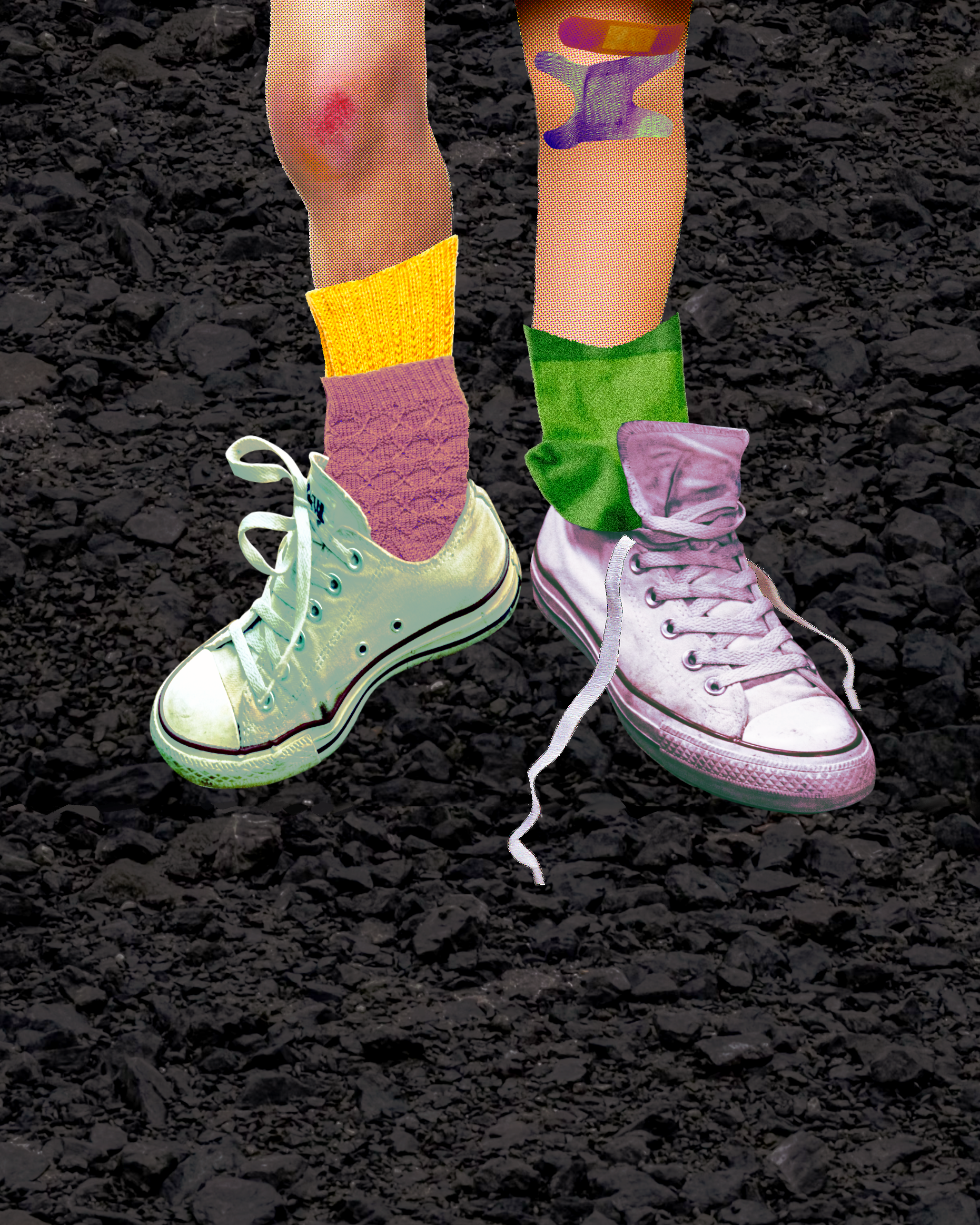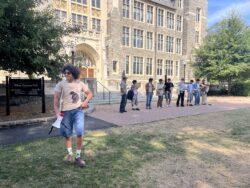We have become too domesticated. We are trapped by structures we built ourselves and controlled by schedules that leave no room for spontaneity or error, diluting genuine connection. Take our mornings, for instance: what if we started becoming less domesticated there?
Wake up—not with an alarm, a phone, a watch, or any other devices. No, wake up with the sun. Ditch the eye mask, blackout curtains, or elaborate sleep optimization setup and rely only on the natural sunlight peering through your window. Skip doing your hair, applying makeup, or any step that falls outside of basic hygiene. Avoid the laundry list of cleansers, toners, moisturizers, gels, serums, and whatever other products the cosmetic industry convinced you were essential. Your skin survived thousands of years without a twelve-step routine; it can handle a day or two of simplicity.
Now comes the fun part: obtain breakfast. Not necessarily hunter-gathering it (though if you’re feeling particularly adventurous, go for it), but find it. Wander to your kitchen or over to Leo’s and eat something as unprocessed as possible: fruit that still looks like it grew on a tree, plain yogurt without eight added toppings, or eggs that came from an actual chicken. Drink water out of a hose if you’re feeling extra feral, or at least from a glass instead of a plastic bottle.
Congratulations, you’ve lived a less domesticated morning! But this is just the beginning.
From the first moments of our day, we follow such rigid structures, choosing to be domesticated instead of feral. Even this word, feral, elicits discomfort. But perhaps we need such a radical word to inspire a major lifestyle change.
So, why go feral? It all started this summer when I was grabbing a mop from the facilities room of the summer camp where I worked. I walked past the water heater and noticed a sticker that I had previously overlooked: “DOMESTIC WATER.” I laughed out loud. We are in the middle of the woods, and we have domesticated water? How does one even domesticate water?
This sparked a realization of just how domesticated our lives have become. I mean, I can’t even sleep without an eye mask or blackout curtains. Our time is scheduled down to the minute, and our days have gotten longer by utilizing artificial lights.. Everything we could ever need is arguably too accessible. Most glaringly, we spend so much time looking at screens our attention spans are worse than a goldfish’s.
We need to break away from the ease of our daily lives. Going feral doesn’t necessarily require the elimination of technology or modern advancements, but it does mean being aware of the little conveniences that exist, all the extra products we consume, and the comforts we have so carefully built. It’s recognizing everything that keeps us from having unstructured time to connect with the natural, unpredictable world around us.
Standing in that facility room, I also wondered: What if we lost it all tomorrow? How would we function without prepackaged foods, the internet, or even time?
I’d like to think we would find a way, one that would ultimately leave us feeling connected to each other by leaning into our discomfort. We would become more aware of our surroundings—noticing the colors in our sky, remembering people’s names, and, ultimately, feeling less constantly overwhelmed.
Even with its “domestic water,” the summer camp I worked at, YMCA Camp Reed, is a case study in going a little bit feral: a no-technology camp driven by the belief that we need to disconnect to connect. While we still follow a schedule and rely on a bell to tell us when to go where, we let go of structure in many other ways.
Absent from technology, we spend most of our time outside, allowing us to spend less energy focused on what’s next and more time present with each other. In this environment, we build relationships in one week that might otherwise take months.
Meals are not just a set time to eat but a time to connect, listen to music in the lodge, and dance on the tables. Instead of just yelling at a screen, we play old camp games like kick the can and capture the flag, allowing us to talk with each other. Sometimes we just meander around, getting lost in the woods and connecting to the land we are fortunate enough to call our playground. Upon leaving camp, I felt much more social and when I looked around our last staff meeting, I was able to recall endless genuine conversations with everyone in the room. This was something unheard of back at school, where an obsession for organization interferes with thoughtful connection.
Going feral doesn’t mean letting go of every modern convenience. Instead, we can start small. Maybe we change the first thing we see in the morning from our phones to the sky. Perhaps we take a longer dinner, or ask strangers instead of Google for directions. Above all else, we should intentionally create less structured days, still attending important events like classes but leaving room for boredom, uncertainty, and reflection. Deciding right in the moment what you’re going to do, not days before, prioritizes genuine, intentional interactions.
I think we could all use a little more “feral” in our daily lives — accepting that things shouldn’t always be organized, easy, or domestic. Life is, instead, messy, confusing, and unpredictable, but it is these experiences that connect us to one another.






